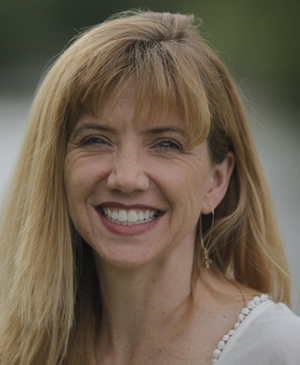Chasing fads? Today’s schools are struggling too much for that
In a March 26 column for Bridge, Rep. Tim Kelly indicated he supports “the notion that we have lost our focus and attention on student achievement and performance while chasing the latest educational fad and worrying about charter schools, choice, and what others may be receiving in their foundation.”
I take issue with this notion. As the mother of two school-age children and vice president of a public school board, I see day after day that schools are focused on performance and achievement as never before. Data is driving our instruction so we stretch students at the top, boost students at the bottom and fill in the gaps for the ones in the middle. Local school districts all over the state are using data to understand what kids are learning -- and what they aren’t.
Instruction has improved as a result, and we know how to keep improving. The problem is not a lack of focus. Kelly’s accusation of poor focus inappropriately shifts the blame to schools. The problem isn’t focus; it is the dilution of our educational resources.
It is easy to make suggestions that we aren’t getting our money’s worth for our investment in education. As Rep. Kelly wrote, we spend billions on education, yet we have stagnant test scores. But that’s not the story in its entirety. We need to add some history.
While the amount spent per pupil has inched upward of late, the actual amount going into classrooms is down more than $800 from 10 years ago when adjusted for inflation. After retirement contributions, $5,876 of the foundation allowance went to instruction and operations in 2005. By 2015, it was $5,030. The increases all go to paying down the school employee retirement obligations. The increases were needed to make up for a devastating recession, the drop in the number of active teachers, and underfunding of the system. This underfunding began in the Engler years and continued until three years ago. In other words, our education dollars are catching up on a mortgage we fell behind on several years ago.
We also have fewer school-age children. From 2003-2014, the number of students dropped 11 percent, or about 200,000 kids. Nearly every school district in the state is feeling the squeeze of that population drop and we are seeing it through annual budget cuts – even in very prosperous areas of the state. This happens because our funding is based on our number of students. Because population drops are often gradual, seeing the areas to cut takes time.
These two factors alone place great stress on our school funding. Yet instead of reducing our educational inventory, state policy actually increased in. It did this in 2012 when it lifted the cap on charter schools. So amid overall declining enrollment, traditional K-12 districts are seeing even more pressure from rising charter enrollment, which has now climbed to 10 percent of our student population. So in a time when we should have seen the natural consolidation of capacity, we saw a thinning of it.
For the last several years, Lansing has disregarded the intent of voters when they approved Proposal A to use the sales tax for schools. During the recession, it was warranted to keep the state from going under. Now the recession is over, and the state continues to tap into it and expand the uses to early childhood education and community colleges.
I applaud Kelly’s desire to remove the categoricals of best-practices and performance funding. They are silly carrots that do nothing to boost achievement. And I applaud his desire to finally fund all districts equally. But to suggest that educators are focusing on trivia is off-base.
Charters pose a very real problem by stressing an already overburdened School Aid Fund. Educators are not chasing fads. They are working hard to implement what has been proven by research and data to work for kids.
To suggest that educators are unfocused is an obfuscation of the real issue, and, well, a blurry understanding of the financial dynamics. To suggest that a streamlined state budget will improve that focus is simply out of touch with what’s happening in public schools and school finance.
See what new members are saying about why they donated to Bridge Michigan:
- “In order for this information to be accurate and unbiased it must be underwritten by its readers, not by special interests.” - Larry S.
- “Not many other media sources report on the topics Bridge does.” - Susan B.
- “Your journalism is outstanding and rare these days.” - Mark S.
If you want to ensure the future of nonpartisan, nonprofit Michigan journalism, please become a member today. You, too, will be asked why you donated and maybe we'll feature your quote next time!


 Anne Hamming serves on the Thornapple Kellogg school board in Middleville.
Anne Hamming serves on the Thornapple Kellogg school board in Middleville.